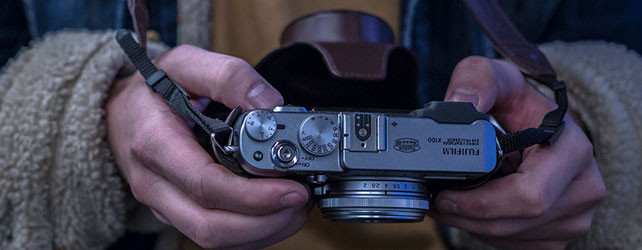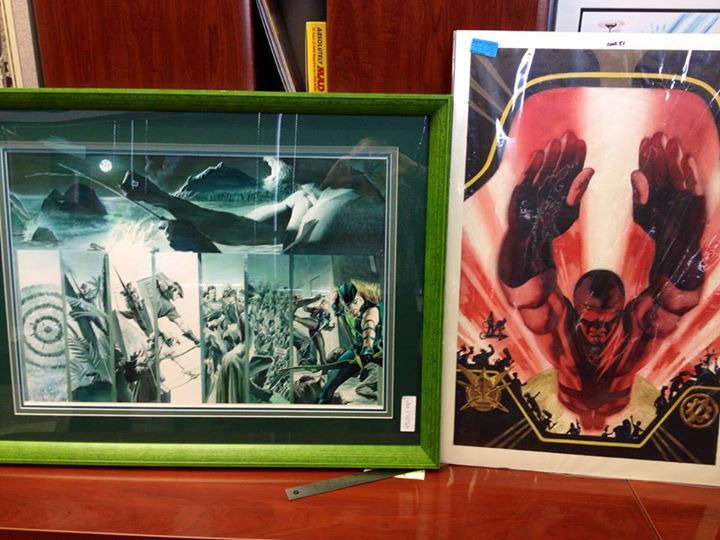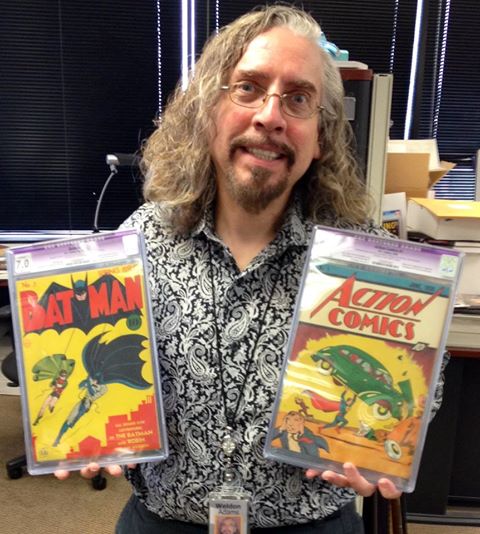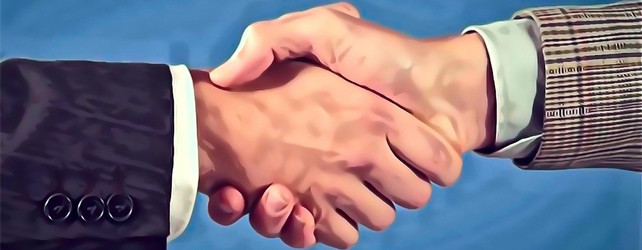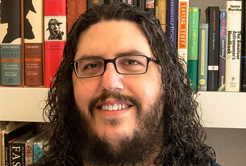My friend Weldon recently got his perfect job: cataloging and grading comic books and comic art for a large auction house. In recent weeks, he’s held the original artwork for the first appearance of Wolverine and the original art from a page of The Killing Joke (the page where Joker shoots and paralyzes Barbara Gordon…yes, he got to hold an original Brian Bolland page). He also held the first Batman comic book and Action Comics #1.
Millions of dollars worth of art and comic books have passed through his hands in recent weeks. Some say he’s lucky; others have asked how they can get a job like that.
The answer is simple: by doing what you love, without expectation of anything more than the love of the thing — and creating opportunities for yourself that might one day pay off.
That’s how Weldon got his recent job.
“Lucky” Friends
I’m fortunate to be friends with a lot of “lucky” people. By lucky, I mean the perception that some people have regarding how friends came to illustrate comic books and book covers; how they came to write novels and record the voices for well-known cartoons; how they became people who spend their days doing exactly what they love.
I’ve heard people say those who do what they want for a living are lucky. While luck (or some kind of break) often factors in after years of hard work, if it’s luck — it’s luck they made for themselves.
What many people never saw in these friends are the years of hard work behind the scenes. People staying home on Friday nights in their 20s because they were at an art desk. Using vacation time to work on their thing, instead of going to a beach and relaxing
. Taking the lowest job in a creative company and working their way up. The effort of it all can be exhausting. Years of working alongside “nobodies” while others clamored for the attention of those who could help — the hope of a shortcut to fame. Eventually, those “nobodies” bubbled up and connections were made…and a hand of help was extended.
Hey, I’ve been doing art for this publisher — let me put you in touch with them…
Luck has little to do with it.
How Do You Get to Do What You Love All the Time?
I still have a day job, so take this next bit for what it’s worth. It is, however, based on what I’ve seen happen in the lives of more than a few people I know.
How do you get that dream job? By doing what you love with no expectation other than doing the thing you enjoy doing. Do it first and foremost because you love it — not because you want a huge following.
Mel Brooks once said:
I don’t really do anything for the audience ever. I do it for me, and most of the time the audience joins me.
Live by that. Do what you love because you love it — not because you want to be a brand. Do what you love because you love it — not because you want a big audience. Do what you love because you love it — not because you want fame.
If you do what you love because you love doing it, maybe one day what you love will become the bulk of what you do.
But if it doesn’t, you’ve still won.
Back to Weldon
Weldon once made six figures selling software, but Weldon has always been happiest when he’s worked around comic books. From his early days of working in comic books stores to eventually editing and marketing comic books, it’s a field that often didn’t bring in tons of money for him, but it’s always made him happier than selling something solely for a paycheck.
There are decades of struggling for what Weldon loves, in much the same way artists struggle until their love pays off.
So the answer to “How do I get that cool job?” is to do what you love.
Independent travel writers aren’t born overnight. People making a living with their YouTube channels didn’t just build it and watch the audience roll in like the tide. Most successful novelists wrote 1-5 books before ever being published (and then wrote another 1-5 novels before they saw decent money (and even more never even see that)).
What looks like an overnight success rarely is.
There Are No Shortcuts to Great Work
One doesn’t sit down to write fiction for the first time and create a masterpiece. No one has sat with a cello and done something like this from the start. Canvases and brushes don’t guide an artist’s hand; decades of hard work do.
The friends I have who make a living doing what they love didn’t go all in and hope for the best — it was never a gamble because they just did what they loved for no other reason than they loved it and always pushed themselves to get better. There have been times in Weldon’s life that it might have seemed to those who look only at numbers that he was painting himself into a corner.
Clearly, he wasn’t:
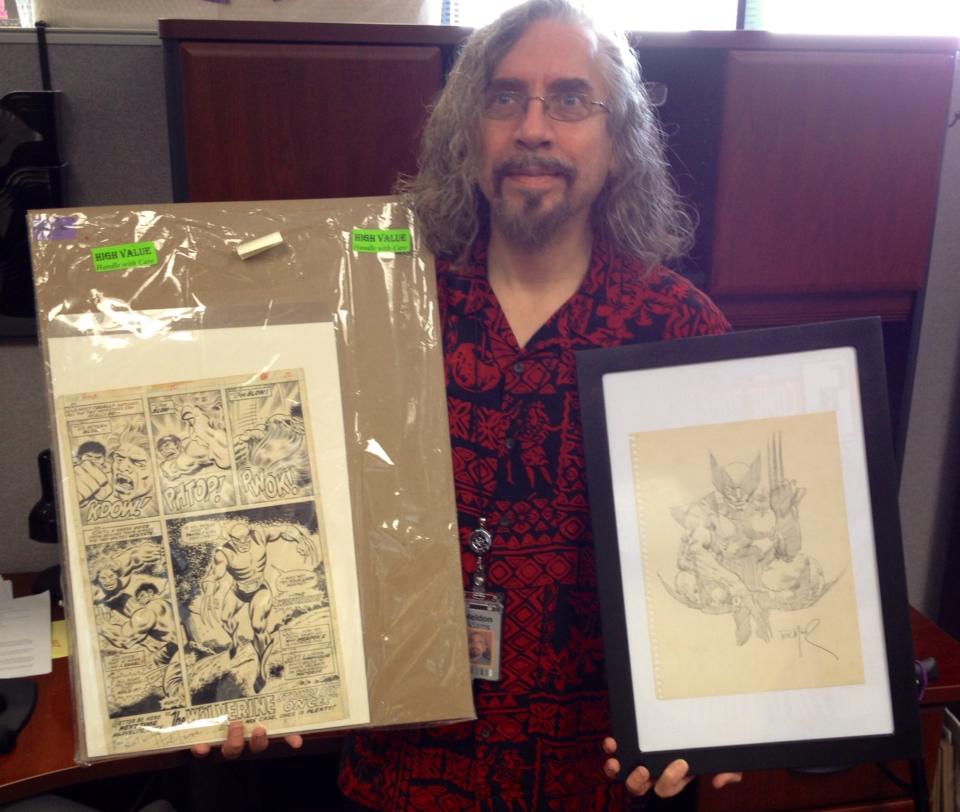
Holding the original art for the first appearance of Wolverine. And to make the image cooler? Why not bring in the first Frank Miller Wolvie sketch…from Weldon’s personal collection.
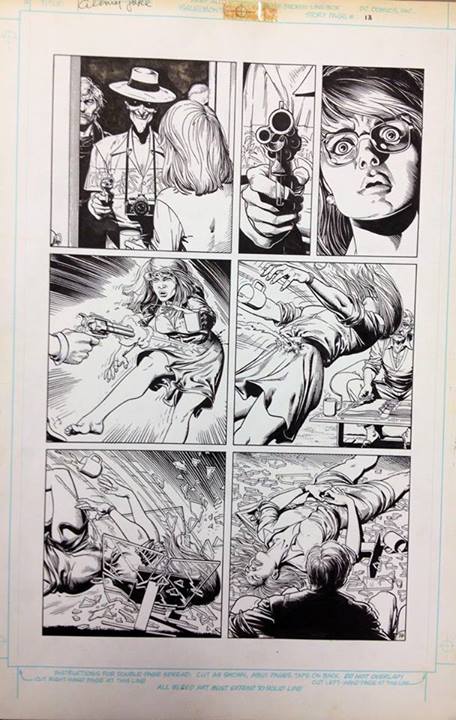
I think it was Weldon who introduced me to Camelot 3000 back in the 80s. So I’m not TOO jealous that he got to hold an original Brian Bolland page…from a great one-shot comic book. (Batman: Killing Joke.)
